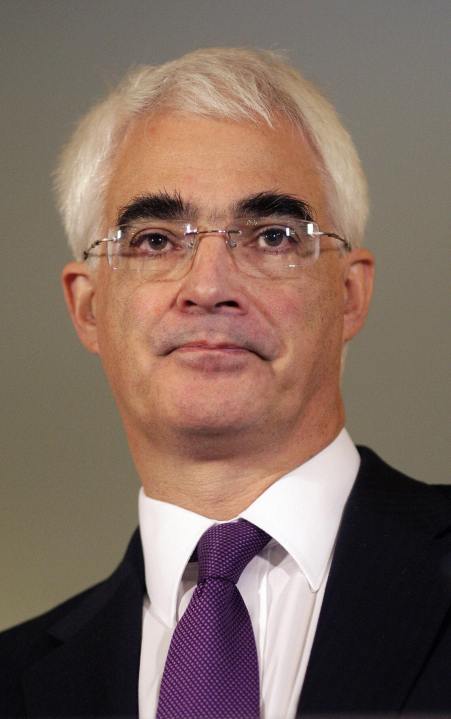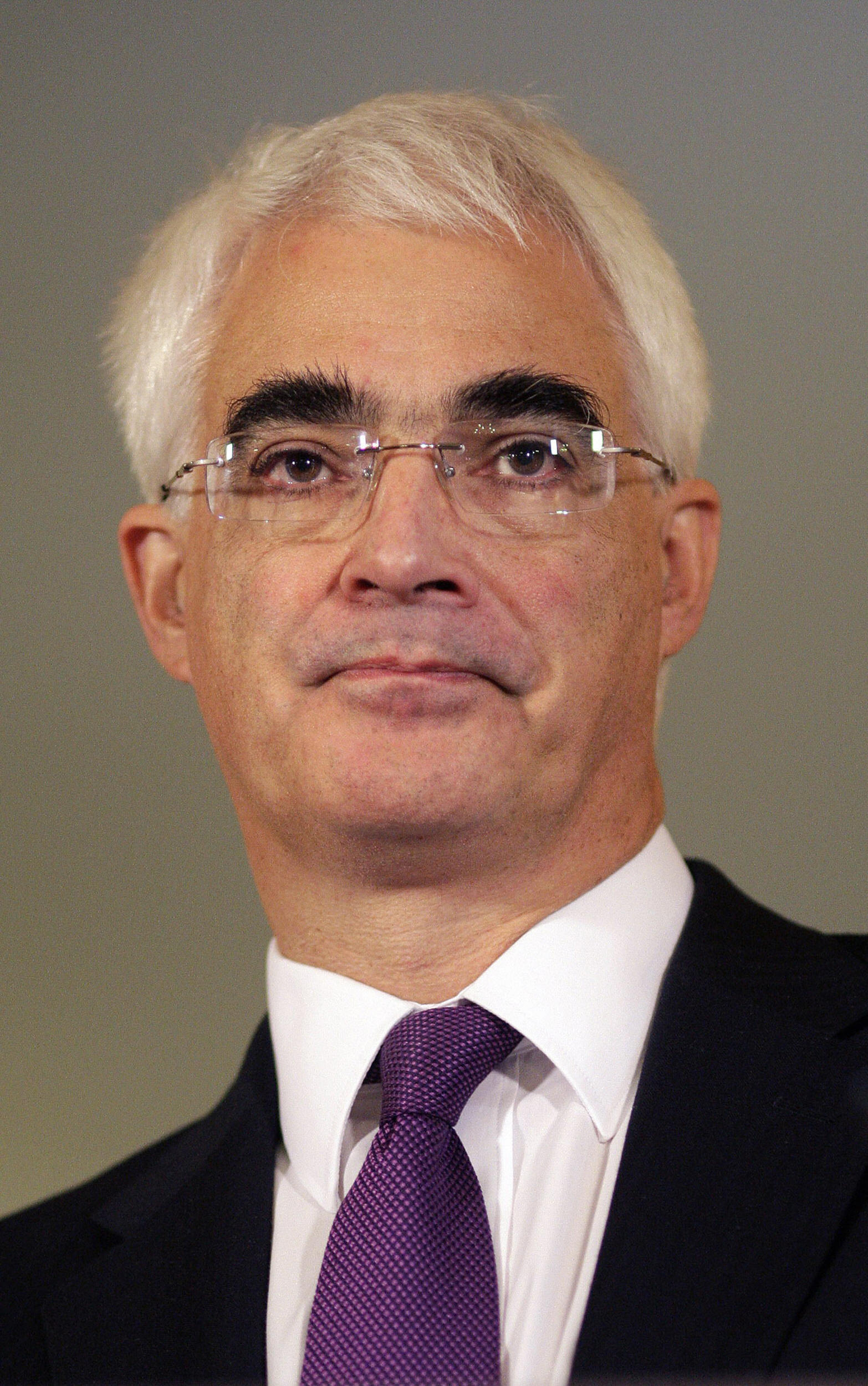 The Great Budget Game starts at 4.30pm today. Darling will have delivered his speech; copies of the report will have been sent out; and journalists across the land will be rushing to write it all up. With the post-Budget briefing finishing at 5pm and news desks shouting for copy from 6.30pm onwards, that leaves very little time for scrutiny. So you write like mad. To come up with respectable-looking edition is a miracle in itself. But the less time journalists have, the more room there is for Brown to manipulate the message. As we wait for Darling at 3.30pm, I thought I’d give you my take on the battle for the truth that will take place later today:
The Great Budget Game starts at 4.30pm today. Darling will have delivered his speech; copies of the report will have been sent out; and journalists across the land will be rushing to write it all up. With the post-Budget briefing finishing at 5pm and news desks shouting for copy from 6.30pm onwards, that leaves very little time for scrutiny. So you write like mad. To come up with respectable-looking edition is a miracle in itself. But the less time journalists have, the more room there is for Brown to manipulate the message. As we wait for Darling at 3.30pm, I thought I’d give you my take on the battle for the truth that will take place later today:
1. The Race. Darling starts at 3.30pm today, he’ll probably sit down at 4.30pm. Only then do journalists get to see copies of the actual Pre-Budget Report. News desks normally expect copy between 6pm and 7pm. It’s a hellish deadline that leaves little time for journalistic inquiry. You simply don’t have time to spot something suspicious, make a call and risk ending up down a blind alley or two. It’s incredibly frustrating: you know can do little more than report government claims and opposition counter-claims. And the truth normally lies with neither.
2. Leaks and Pre-Writes. All newspapers have to produce hefty budget supplements tomorrow. Yet given that newspaper journalists have 90 minutes to do so, how do they come up with the detailed coverage that will be advertised on the masthead of their titles? The answer is pre-writes. News editors commission at least half of the coverage in advance, based on what they think will be in the budget. And this, of course, is based on the leaks. Right now, the theme is “VAT cuts, paid for by taxing the rich” and you can bet cartoons etc are right now being commissioned on this basis. Of course, it’s a nonsense: taxing the £150k+ will only bring in a billion or so, and that won’t fill the £120bn hole I suspect Darling will dig. But it’s politically very important for No10 to get out the message that the super-rich will somehow pay for this. It starts the hares running.
3. Lollipops and Weasels. Every Brown Budget has a lollipop: something big and obvious expressed in clear language, normally with its own press release, and bigged up in the Budget speech. But the real story is in the weasel: disguised in the nerdy small print. So something Brown wants to cover up – like his £100bn raid on pensions – can be described as the “abolition of advanced corporation tax” which sounds like something of interest only to finance directors.
4. Dishonest budget speeches. The purpose of a Budget speech should be giving the House (and, ergo, the nation) a fair summary of the Budget. But Brown would delight in giving entirely misleading Budget speeches – for instance, failing to make clear that the effect of his 2p abolition of income tax is wiped out by doubling the starting rate. Newspaper opinions are formed straight after the budget speech: that’s when the business editor is called by the editor and asked what the main points are. It’s not just the Tories who can be set on the wrong scent, but the whole media.
5. The business/political journalism split. There is often a structural and even cultural split in newspapers. Business departments are regarded as a bunch of nerds who can’t write, whereas the business section regard home news as a bunch of thick, innumerate dupes. It’s the business journalists who often pick up the Budget cons through their contacts. But pushing a line up to home news can be tough. A home reporter, of course, may fight for it: this is what they do. But a business journalist is more prone to sulk. So if “truth-in-the-footnotes” is discovered, the financial hack may not have the clout to change the course of the juggernaut – and often won’t even try.
6. Giving a false scent to the Tories. The Tories are, of course, keen to spot the con – but so keen, they often seize on the first one they can find and their spin team is sent into action with press releases and outraged comment. If the real ‘weasel’ is discovered later, then often they have missed the boat.
7. Hoodwinking the broadcasters. The broadcasters have even less time to give their verdict. Take Brown’s last budget as Chancellor, where he reduced the basic rate of tax by 2p but cancelled out the effect of this by doubling the starting rate from 10p to 20p. The broadcasters were all heavily briefed the 2p income tax cut in advance – utterly misleading, as it turned out. No one watching, or reading a newspaper, would have a tax cut like the one Brown was pretending. But if you’re misled by the Treasury, on whom you are uniquely dependent at that time, what can you do?
8. Humble Pie. If you announced “2p tax cut” immediately, it’s a bit embarrassing to then say to your viewers/readers “actually, no, I was fooled.” So even when the con becomes clear, the reporting of it is subdued because if journalists realise they were sold a pup then it’s pretty hard for them to say so. That’s why so much importance goes on cajoling the broadcasters: they tend to mould the media narrative. As Mark Twain observed, a lie can make it halfway around the world before truth has got its boots on.
9. I have the Prime Minister on the line… Gordon Brown starts pumping the phones at about 6pm, calling up editors and asking what they thought. That he should spend his time in this way shows how important spinning the Budget really is. And I suspect it will be him, rather than Darling, making the calls.
10. Those Pesky Accountants. Often the best people at finding the truth are the likes of KPMG or Grant Thornton who will look at the smallest of small print and find the con – as they did last year. It was Nigel May of MacIntyre Hudson who declared on the day that “The Chancellor has done some wonderful arithmetic here by adding together two allowances that already exist, and passing it off as doubling the allowance.” But that was by early evening, when most of Fleet St’s coverage was being subbed and prepared for tax-off.
Fleet St has grown accustomed to these tricks. Broadcasters resisted the “2p tax cut” spin last year, and most coverage now starts with “The Treasury says…” which gives room to backtrack later, if it turns out the truth lies somewhere else. The recent trend towards noon Budgets made huge amounts of difference. If journalists have hours to pour over the Budget, there’s far less chance of being misled. I’ll never forget the first three words of The Guardian’s coverage of last year’s Pre-Budget Report “Labour shamelessly burgled…”.
But today, when the whole ballgame changes and the report is released at about 4.30pm, it will be the devil’s own job to try to work out what’s really going on. What should be a straightforward reporting task has become a mammoth game of cat-and-mouse. Hence we appeal to CoffeeHousers with time and access to the Treasury website, to download the Budget and look for their own “weasels”. We need all the cats we can get.








Comments